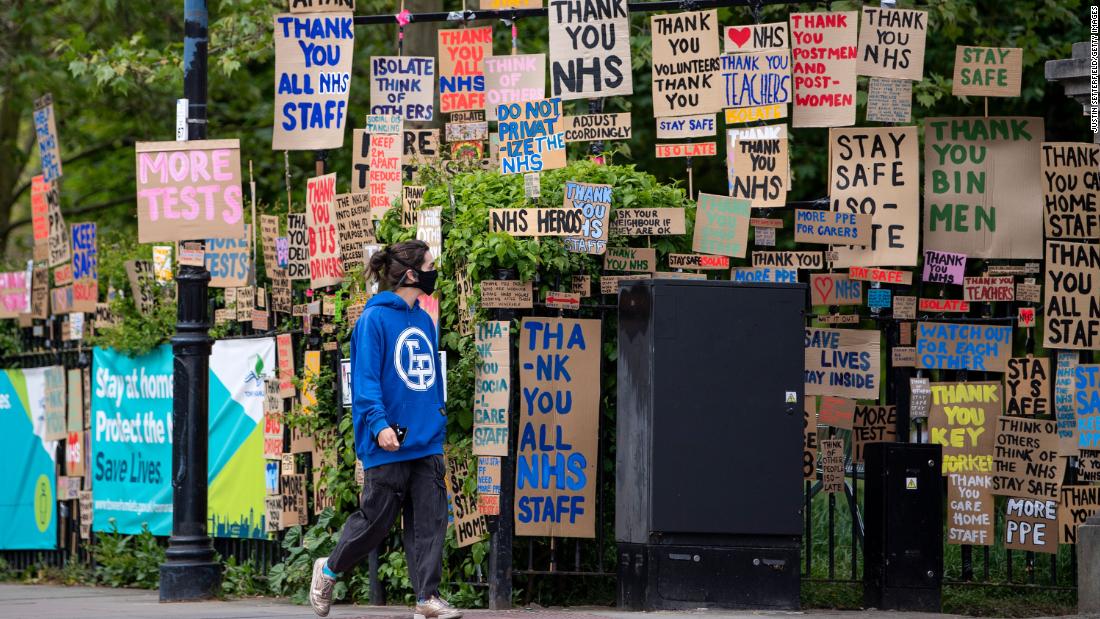
Swedish city covers park in chicken poo to stop covidiots from partying - National | Globalnews.ca
Swedish officials can't impose coronavirus lockdowns, so one town is making the park a crappy place to be for the annual Walpurgis Night festival.
|
|
|


TD Expedia tells me to check after April 30th (today) to get an update on my pre-booked trip. I'll post what they say.70% of travel companies won’t operate tours until October 2020: survey
Apr 30 2020, 7:51 am
In a recent survey conducted by travel booking management site WeTravel, 70% of travel companies stated that they would be rescheduling all pre-booked tours for October 2020 or later due to the COVID-19 global health crisis.
The survey consisted of WeTravel clients and sought to determine how heavily the ongoing coronavirus pandemic has impacted their companies.

70% of travel companies won’t operate tours until October 2020: survey | Mapped
The survey sought to determine how heavily the ongoing coronavirus pandemic has impacted various travel companies around the world.dailyhive.com
So expectation is everyone sit at home till fall for a disease with a 1 percent death rate that can be mitigated by masks and social distancing?
I wouldn't want to be in any political leader's shoes right now - we're quickly reaching a point where they'll have to choose between causing more deaths or completely strangling the economy.
The global COVID-19 pandemic began in Wuhan, China, but data from Canada’s largest provinces show it was American travellers, not Chinese, who brought the deadly virus to our shores.
Despite this evidence, the federal government brought in travel restrictions on China first and American border restrictions were the last to be put in place.
The National Post asked for data on the origins of travel-related cases in Ontario, Quebec, British Columbia and Alberta, the four provinces that have seen the majority of Canada’s COVID-19 cases.
Canada moved later than many other countries to restrict international travel from China. It began with screening measures at airports that were slow to roll out and relied on passengers to disclose if they had symptoms of the virus. Air Canada suspended flights from China in February and the government encouraged people not to travel to China as early as January, but did not ban travellers until March 18 when it imposed sweeping global restrictions.
When those restrictions went into force virtually all international travel had ground to a halt. International visitors were barred from Canada and only Canadian citizens and permanent residents were allowed to return to the country.
The U.S. border remained an exception for several days, as the government coordinated a plan with the U.S. to keep essential goods flowing.
B.C. Health Minister Adrian Dix was critical of that decision at the time because the government was leaving the U.S. border open to travellers. As an outbreak picked up speed in neighbouring Washington state, he was direct with Americans during a press conference that he wanted them to stay out of his province.

“We remain concerned that access from visitors from the United States continues to be allowed,” said. Dix. “It’s our strong message that visitors from the United States not come to British Columbia.”
As of April 17, Ontario has identified 1,201 cases of COVID-19 in people who had recently returned from some type of international travel. Of those cases, just five related to travel from China. By contrast, 404 were from people travelling from the United States.
The other top five destinations were the United Kingdom with 126 cases, cruise ships with 74 cases, Mexico with 68 and sunny Spain with 49 cases. Iran and Italy, two other hot spots for the virus, are also more heavily represented than China; travel from Iran was connected to 19 cases and there were seven cases from Italy.
In Quebec, 373 cases came from the United States and the province reports zero cases connected to travel from China. Travellers from France brought 151 cases to Quebec, 121 originated in Puerto Rico and 117 in Austria.
Alberta didn’t have a complete breakdown of its travel cases, but had only a single case connected to China, while fully 36 per cent of its travel-related cases are from the United States. British Columbia was unable to provide a breakdown by country, but the province’s data shows that, while its first cases were from travel, most came from spread within the community.
The U.S., U.K. and China were the top three destinations for travellers to Canada in 2018, according to data from Statistics Canada.
Dr. Theresa Tam, Canada’s chief public health officer, said they were responding to the information they had at the time and started with enhanced screening and self isolation orders.
“We instituted the enhanced screening focused initially on China and then as it moved into Europe and Iran,” she said.
She said curbs on travel from Iran came before Iran was even reporting it had cases because the public health data in Canada made it clear there was a problem there.
She said it became clear in March the virus was everywhere, which was why the restrictions were stepped up so quickly.
“In March, we in very quick succession told people not to go on cruises, issued a global travel health notice, because you can’t actually tell which country the virus will come from, followed by the succession of border measures,” she said.
She said the work was difficult and required coordination among multiple government departments.
All of Canada’s early cases came from travel, but overtime as travel restrictions came into force and the number of people visiting slowed to a trickle they have become a much smaller part of the picture.
In Ontario, for example, on April 1, there were 695 cases connected to travel and as of Monday 1,395 — almost double. But during the same time period the overall number of cases has increased roughly five-fold.
The U.S. and several other countries closed borders to China in February. The U.S. also closed its border to many hot spots like Iran and Italy well before Canada did.
Conservative Leader Andrew Scheer has been critical of the government for not following suit.

“The Liberals decided not to impose mandatory screening at airports. They have decided not to impose mandatory quarantine procedures. They have decided not to implement any restrictions on travellers entering into Canada,” he said in question period on March 12.
As of Wednesday however, the U.S. has more than a million cases of the virus, roughly twice the per capita number that Canada has, showing the limits of travel restrictions in a global pandemic.
Tam’s deputy, Dr. Howard Njoo, said it would have been difficult to close the border in March to the United States or Europe with so few cases in Canada, but the virus was already spreading around the globe.
“The world is interconnected and really the virus was spreading throughout,” he said.
He said the steps Canada did take were only part of the solution.
“If you look at border measures, they are only one measure, one layer, of a multi-system approach.”
Njoo said they also know now that the few cases Canada did get from China were Canadians returning home.
I wouldn't want to be in any political leader's shoes right now - we're quickly reaching a point where they'll have to choose between causing more deaths or completely strangling the economy.
Pei is closed to non residents and have a checkpoint at the bridge.
Be honest that makes sense for them and it's work they have had no cases in a while
Travel restrictions, due to COVID-19, to and from the USA should stay in place long after restrictions to and from other countries and regions of the world, such as the EU.


I would add the UK to that list. They are still getting hit hard by Covid. We don't want them bringing that over here.

Where did it go wrong for the UK on coronavirus?
The British government has claimed a win in its battle against coronavirus.www.cnn.com
U.K. appears to be on track for one of Europe's worst COVID-19 death tolls

COVID-19: U.K. says kids with no underlying conditions have died from syndrome linked to virus
Experts are investigating a possible link between the coronavirus and clusters of severe inflammatory disease among infantsnationalpost.com




